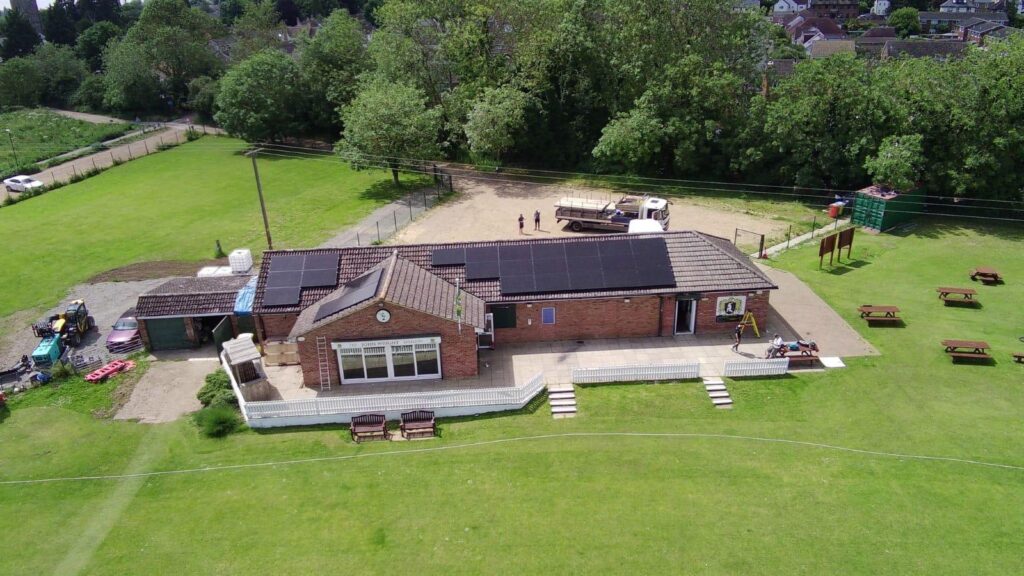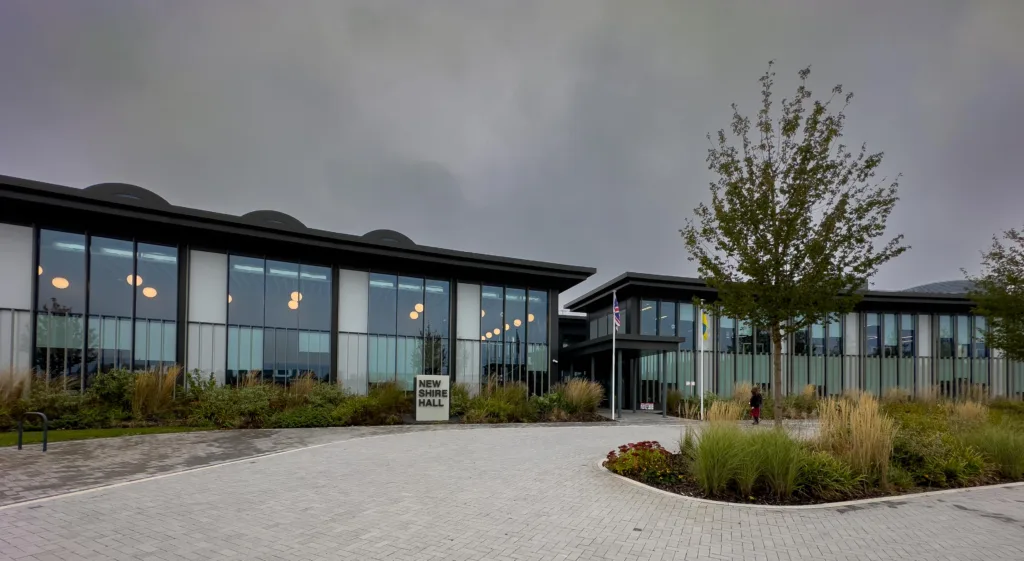A village cricket club has installed solar panels, using Cambridgeshire County Council grant funding of £35,335 from the Cambridgeshire Priorities Capital Fund (CPCF). Rob Ashwell, chairman of Eaton Socon Cricket Club which won the funding, said: “The installation of solar panels works in conjunction with our evolving net zero plans.
“It allows us to take another huge step forward on our journey of tackling the climate crisis and supporting Cambridgeshire’s plans for net zero carbon emissions in our county by 2045.”
Councillor Alex Bulat, vice-chair of Cambridgeshire County Council communities, social mobility, and inclusion committee, said: “Eaton Soton cricket club estimated it would take around 170 trees to absorb the equivalent carbon emissions that their new solar panels will save each year.
“I look forward to the club seeing those environmental and financial benefits for many years to come.

“Our vision for a greener Cambridgeshire is ambitious – net zero carbon emissions by 2045. Working closely with local likeminded community organisations, is one of the most effective ways we can make that a reality.”
In March of this year, grants of up to £40,000 were awarded to 26 community groups across Cambridgeshire, including village halls, parish councils, schools, and voluntary organisations.
Applicants were required to demonstrate how their project supported the council’s ambitions – creating a greener, safer, and more caring Cambridgeshire.
Applications were reviewed by the council’s communities, social mobility, and inclusion Committee.
Eaton Socon Cricket Club had seen their energy costs triple during the ‘cost of living crisis’ and were keen to make broad changes that could reduce their energy consumption.
A recent refurbishment of their toilets and showers prioritised water saving measures and replaced their less sustainable halogen bulbs with more efficient LED alternatives. They then applied for council funding to cover the purchase and installation of a new solar energy system.
![Councillor visit to ESCC_cropped - News for Peterborough and Cambridgeshire Councillor visit to ESCC (L-R: Councillor Geoffrey Seef, County Councillor for St Neots The Eatons [local councillor]; Rob Ashwell, chairman of ESCC; Cllr Alex Bulat Vice-Chair of Cambridgeshire County Council's Communities, Social Mobility, and Inclusion Committee). Credit to Cambridgeshire County Council.](https://www.cambsnews.co.uk/wp-content/uploads/2024/07/Councillor-visit-to-ESCC_cropped-1024x577.jpg)
Now they anticipate that 66 per cent of the club’s electricity will be supplied by the solar panels.
Electricity will also be exported back to the grid, for an estimated total saving of around 3,750 kg CO2 each year – and a significant financial saving for the club too.


![Councillor visit to ESCC_cropped - News for Peterborough and Cambridgeshire News for Peterborough and Cambridgeshire - Councillor visit to ESCC (L-R: Councillor Geoffrey Seef, County Councillor for St Neots The Eatons [local councillor]; Rob Ashwell, chairman of ESCC; Cllr Alex Bulat Vice-Chair of Cambridgeshire County Council's Communities, Social Mobility, and Inclusion Committee). Credit to Cambridgeshire County Council.](https://www.cambsnews.co.uk/wp-content/uploads/2024/07/Councillor-visit-to-ESCC_cropped.jpg)


















